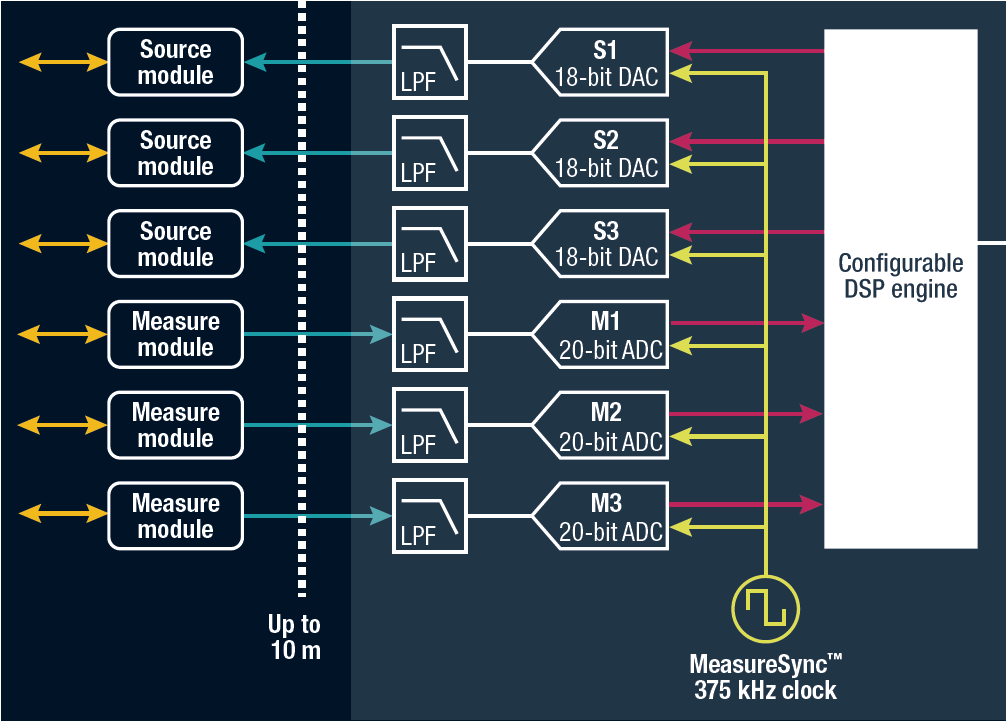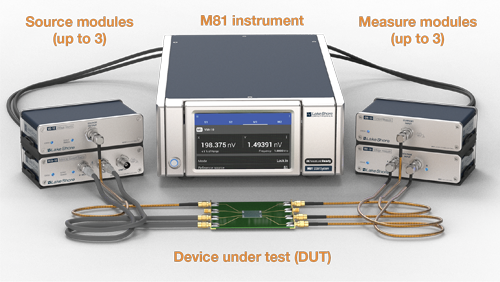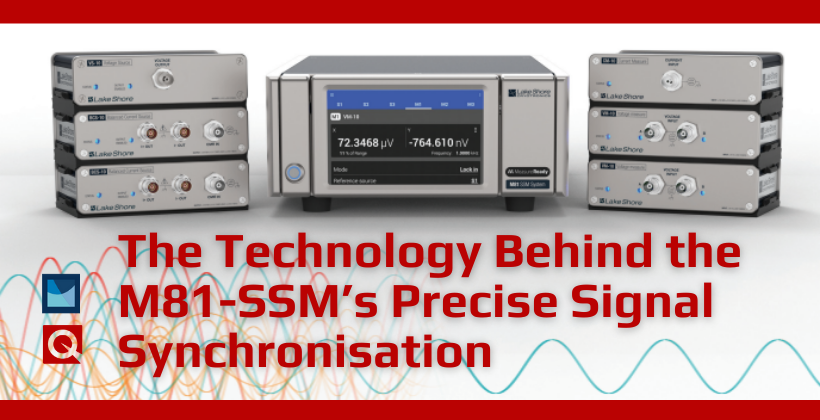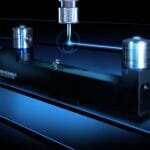One of the most unique features of the new modular Lake Shore MeasureReady™ M81-SSM synchronous source measure system is its patent-pending MeasureSync™ signal synchronisation technology. This real-time sampling architecture enables simultaneous source module update and measure module sampling timing across all channels, regardless of signal types for frequencies up to 100 kHz.
Because MeasureSync samples all channels at precisely the same time, it ensures that multiple devices under tests (DUTs) are tested under identical conditions, so you obtain consistent measurement data. In addition, the architecture allows each source and measure amplifier module to be physically co-located as near as possible to the DUT to further minimise noise pickup from ambient, thermal, ground loop, and other common interference sources.
THE TECHNOLOGY EXPLAINED:

Amplitude and frequency signals are transmitted to/from the remote amplifier modules using a proprietary, real-time analogue voltage method that minimises noise and ground errors while ensuring tight synchronisation of all modules. This analogue interface keeps noisy digital circuitry away from the modules’ sensitive analogue circuits. The signals are digitised by a dedicated converter for each channel, which are synchronised by the shared MeasureSync clock. Each rising edge of the clock triggers every ADC to take a reading and triggers each DAC to update its output. In between clock edges, all of the data is transferred from ADCs to the controller and each DAC is preloaded with a value that is applied on the next edge. Unlike multiplexed systems, this maintains total synchronisation and continuous sampling of each channel. Digital signals are generated or processed by a configurable DSP core.
Each measure channel can be configured to perform DC, AC, or lock-in measurements. The core processes the individual readings collected at 375 kSa/s and produces fully processed and calibrated readings at up to 5 kSa/s. These readings can be observed on the front panel and collected via the remote interface.

The multiple parameter query structure allows a single data query to return multiple readings in one query, which maintains synchronisation. Additionally, the configurable data streaming interface can be used to provide a continuous stream of synchronised data at a fixed, regular time interval, or a burst of high-speed collection. This combination of an analogue interface to the distributed modules, a centralised simultaneous acquisition clock, and a unified remote interface provides end-to-end signal synchronisation that cannot be easily achieved with separate instrumentation.
For more information, visit the M81-SSM webpage and watch the video.





